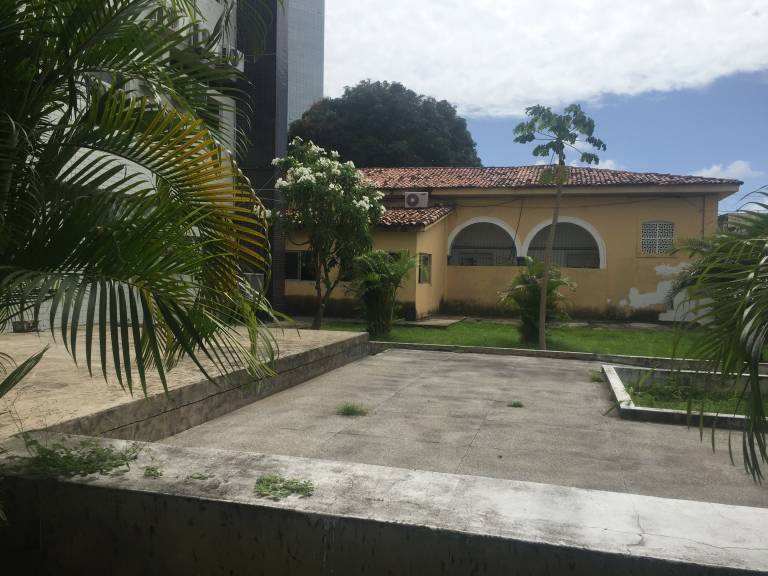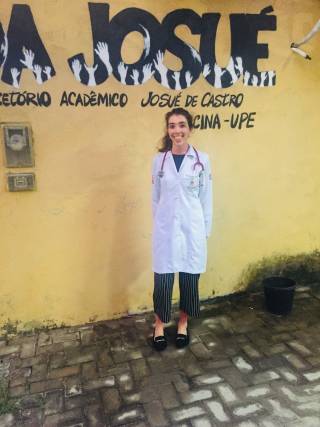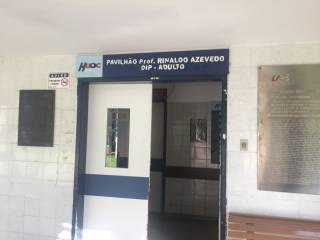Santander Universities Mobility Bursary: Brazil
14 July 2020
Josephine received funding from the Santander Mobility Bursary and chose to do an elective medical placement in Brazil. Read on to find out about her experience of working in a hospital in Recife.

As a medical student in her fourth year at UCL, I chose to undertake a medical elective placement in Brazil in order to increase my understanding of medicine in a global context. From the experience, I hoped to learn more about how the Brazilian health system works, what diseases are prevalent in Brazil and how such conditions are treated. This report gives insight into how I learnt this and so much more…
My time at Oswaldo Cruz hospital, one of the most resource-poor hospitals in Recife, Brazil, gave me the opportunity to see infectious diseases that I would never see during my medical placements in the UK. These conditions included leishmaniasis, leprosy, neurotoxoplasmosis, meningeal tuberculosis and dengue. One condition that particularly fascinated me was sporotrichosis, which is a fungal disease carried by infected cats. I learnt that the condition has only become prevalent in Recife in the last two years as, prior to this, it was only reported to be in Rio de Janeiro. Now every third patient in the Infectious Diseases’ department has the disease. The disease has migrated, and the doctors have had to adapt and learn how to deal with this new endemic.
The hospital itself is one of the public hospitals, which are run on government money and tend to be poor, as was the case with this hospital. Only the very poorest patients in the area use public hospitals and, in doing so, receive free treatment on the public health system, Sistema Único da Saúd (SUS). Inside the hospital, lights flicker and the generator drones. Doctors have to queue to take turns using the few computers, there is no hospital-wide electronic record system, and the doctors’ attire is considerably more casual than in England, with many wearing jeans underneath their white coats. Within hospital grounds, one must be careful not to step in any puddles as these can be breeding sites for diseases.

Despite the conditions, it is the same doctors who work in the public system as work in the private system. Many of these doctors see working in the public system as their way of giving back to the community. Being hosted by a very kind family of doctors, I gained insight into just how hard these doctors and their students work. I was surprised that, despite the relative poverty of the hospital compared to my own state of the art teaching hospital in central London, the medications used were much the same. I could not speak the language (Portuguese), but the basis of Latin and Greek in medicine meant that I still could understand the diseases, the tests and their treatments. Human suffering is also a universal phenomenon; witnessing the doctors tell a family that their 19-year-old child was unlikely to live beyond the week was truly awful. It is incredible to realise that, even halfway across the globe from home, medicine is a universal language.

I am so grateful to the UCL Study Abroad Santander Universities Mobility Bursary for making this unforgettable learning experience possible. I have gained so much invaluable knowledge which I will take forward in my medical career.
By: Josephine Elliot
 Close
Close

